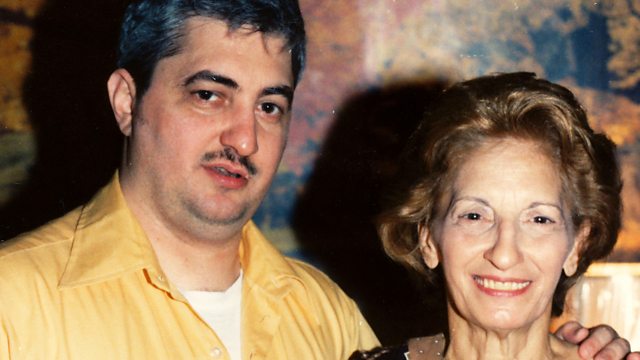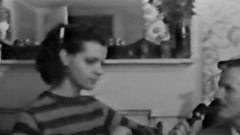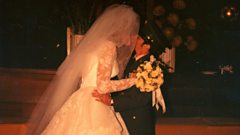
The Great Sex Addict Heist: The Dog
Portrait of John Wojtowicz, inspiration for Al Pacino's character in Dog Day Afternoon, who held a bank hostage to try and raise money for his lover's gender confirmation surgery.
An extraordinary portrait of eccentric New Yorker John Wojtowicz, the inspiration behind Al Pacino's character in the iconic 1975 film Dog Day Afternoon. Director Sidney Lumet's daylong saga, in which Wojtowicz took a bank hostage in the hopes of raising money for his trans lover's gender confirmation surgery, hardly exaggerated the actual 1972 event, but only captured one piece of a much larger story.
Filmed over a ten-year period, the documentary chronicles wider aspects of Wojtowicz's life in the years leading up to his death. With jaw-dropping honesty, Wojtowicz describes how his excessive libido led him to have multiple female and male lovers, his own interviews interweaving with gripping archive footage of the robbery, 70s-era interviews and the early gay liberation movement. It all combines to create a larger-than-life persona - by turns lover, husband, soldier, activist, mama's boy and bank robber.
Last on
More episodes
Previous
Clip
-
![]()
Liz Eden talks about her sex change
Duration: 01:04
Allison Berg and Frank Keraudren, directors of The Great Sex Addict Heist: The Dog, answer the Storyville Q&A

AB: For THE DOG, no question – it’s character. The film is essentially John Wojtowicz running rampant on camera. He could probably just sit there and read you a dinner menu and it would be fascinating. Although there is an incredible story based on something he did in his life, what makes this documentary incredible is the man himself.
FK:�� Stories are how we communicate with each other.�� In film, story gives you structure, and keeps the viewer engaged.�� Character, as well as context (social, political..etc..) adds layers of content - and can be equally fascinating.�� Ultimately, the goal is to connect with the viewer, and the ultimate common denominator is that we are all human beings. So whether it's story or character, it has to have a heart.
��
What made you first want to explore the subject?
AB: We were watching Dog Day Afternoon one night and were intrigued – Al Pacino plays one of the most memorable characters in cinema and we wanted to find out what the real-life bank robber would be like. We had no idea that John Wojtowicz would be even more outrageous and unique!
FK: To pick up on the first question:�� The story fascinated us, but we really knew we wanted to make this film when we met the character.�� The Dog himself was unforgettable from the minute we met him.
��
How long did it take to get the film off the ground?
AB: It didn’t take very long to get the film off the ground. We found The Dog’s mother in the phone book and gave her a call asking if she could put us in touch with her son (we had no idea that they were living together). The Dog called us back that very night about 2am. We met up in a diner a couple of weeks later and started shooting a short time after. However, it was a self-financed film and there were certain things that developed in John’s life that changed our original plans quite a bit. In the end, it took us a decade to make this film.
FK:�� We actually filmed the interview with John that covers the first half of the film on the very first day of shooting.�� It took nine years and 364 days to get the rest, but we could have never gotten as deep into the subject if we had made the film in a year.�� So in a way, time was on our side, even though it didn't feel like it.
��
What were you most surprised to learn in the course of production?
AB: We were not aware of The Dog’s involvement in the gay rights movement until we were getting to know him and then when we spoke with and interviewed Randy Wicker, it turned out that he had incredible footage that he had filmed of the marriage bureau protest, John and Liz’s wedding and personal interviews he had conducted with Liz. There was so much archival material that we found or were given during production that we were unaware of when we started and it was a great surprise.
FK: Another amazing moment was when the Dog introduced us to his brother Tony and we went off to Coney Island (only to find that it was closed that day).�� The Dog had never really spoken about Tony to anyone, but it was an incredible surprise and revealed a whole other side to the story.
��
What have been the differences in reception to the film in countries it has now travelled to?
AB: We weren’t sure how the film would be received outside of the United States as “Dog Day Afternoon” is such a popular American classic. But when we travelled around to different festivals around the world, we were thrilled that audiences in Greece, Spain, Ireland and all over seemed to appreciate The Dog – there were lots of laughs throughout every screening. And who knows, perhaps people outside of the U.S. appreciated the Brooklyn accent even more.
FK: One of the best screenings we had was at the Berlin Film Festival, I think.�� The audiences there were smart, the Q&A's were great.�� Even though it is a quintessential "New York" movie (like Dog Day Afternoon), we ended up covering such a broader story arc that there are elements that any audience can relate to:�� It's one person's life in 100 minutes.�� "Birth, School, Work, Death", as the song goes (although very little work in this case, but a lot of struggle nonetheless).
��
Which documentary has most inspired you?
AB: I cannot name just one but some of my favorites are: Crumb, American Movie, Gimme Shelter, Fast Cheap & Out of Control, Don't Look Back, Hearts of Darkness, Burden of Dreams, Grey Gardens
FK:�� I'm not sure that specific documentaries have inspired me directly.�� I think that since I was a teenager and discovered that you could record sound on cassette tapes and play it back, I was fascinated by the idea of "recording reality" - through film, photography or music.�� It adds perspective.�� But I have many favorite docs, of course:�� The Atomic Cafe, Exit through the Gift Shop, Grizzly Man, Don't look back.�� Many others.
��
Favourite Website/blog?
AB:�� newyorker.com and bombmagazine.org
FK: I don't spend a lot of time on specific websites or blogs. Bookfinder.com is a favorite tool.
Person you’d most like to interview (living or dead?)
AB: Maya Deren, PJ Harvey, Gabriel García Márquez, Truman Capote, Prince. And in relation to our film The Dog – I wish we could have interviewed Liz Eden
FK: Salvador Dali, Orson Welles, Terrence McKenna, Iggy Pop, Black Francis, people who live small, simple lives faraway from the limelight.
��
Best piece of filmmaking advice you’ve ever been given?
AB: Can't think of specific advice I've been given but the best way to learn is by doing. Expect the unexpected, work with people you like because you'll be spending a lot of time with them, have a sense of humor, bring some snacks and enjoy the ride.
FK: I'm not sure anyone really gave me direct advice...�� I think what I would say is: Learn to trust your gut feeling.�� By that I mean:�� Make films.�� Fail, succeed, whatever.�� But along the way, learn to trust your instinct regarding what works and what doesn't (and what matters to you).�� When you develop that, you will have an inner compass, so to speak.�� And when you find yourself in the middle of overwhelming chaos and nothing goes as planned (as it will), you will have something to guide you.�� Not a perfect solution, but an important tool.
��
Best piece of filmmaking equipment you can’t live without?
AB: Camera – although for the next film, probably a different camera
FK: and preferably a small, simple camera (that performs well in low light situations).
��
If money was no object, what is your dream documentary subject?
AB: Can you have this money person call me? I'll be happy to make a pitch.
FK: Any of the many music-related films that I can think of, which would all require archival footage, photographs and the actual music itself.
Favourite film of all time?
AB:�� Impossible for me to name just one but if you put me in a room with a stack of Pedro Almodovar, Fritz Lang, Alfred Hitchcock, Woody Allen and select film noirs, I’d be pretty damn happy.
FK: I can never answer that question. Titles that come to mind quickly: Vertigo, The Phantom of Liberty, The Last Picture Show, I Hired a Contract Killer, The Night of the Hunter.
��
Most difficult access?
AB: On this film – just getting The Dog himself! On any film – getting permission to film an inmate in maximum prison in Accra, Ghana and only having one day to make it happen.
FK: I'd say access to The Dog, but by that I mean access that went beyond doing an interview.�� Emotional access.�� Continued access and establishing an actual bond.�� I'd say it took a year or two before that was really established.
��
Best recent read?
AB: Slouching Toward Bethlehem by Joan Didion
FK: Re-reading "A Good Man is Hard To Find", by Flannery O'Connor.
Credits
| Role | Contributor |
|---|---|
| Director | Allison Berg |
| Director | Frank Keraudren |
| Series Editor | Nick Fraser |
Broadcast
- Wed 18 Feb 2015 22:00
91�ȱ� News: The man who robbed a bank for love
John Wojtowicz tried to rob a bank to finance his lover's gender reassignment surgery


